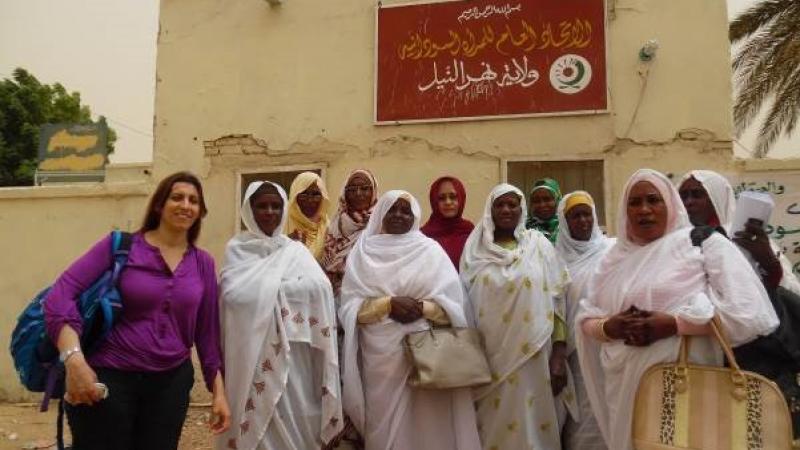Strengthening the Participation of Women in Wheat Production Systems

Our understanding of the constraints holding back Africa’s women farmers and entrepreneurs is improving – thanks to an ICARDA - managed wheat initiative working across sub-Saharan Africa.
Gender inequality is a recurring feature of many agricultural production systems across the wheat-growing regions of Africa, and women farmers often lack access to credit, land, and other inputs. The result: limited adoption of new innovations, low productivity and income, and a missed opportunity to enhance household food security and prosperity.
In contrast, enhancing women’s involvement in agricultural development generates positive impacts beyond the lives of individual women – with benefits felt across entire communities and nations.
Identifying and challenging obstacles
Challenging the obstacles that rural women face is a key priority of a wheat initiative managed by ICARDA and supported by the African Development Bank and the CGIAR Research Program on Wheat.
Action research to integrate women beneficiaries into the SARD-SC project in Sudan, Nigeria, and Ethiopia has helped identify actions and approaches that can be applied more widely to enhance women’s integration within diverse wheat production systems.
The main objectives were: increasing women’s income generation and contributions to food security, while addressing structural inequalities in access to inputs and services such as information, training, and microcredit.
Context-specific interventions
Our project employed context-specific interventions for growing grain, demonstrating technologies, adding value, and facilitating access to microcredit. Women’s involvement (65% in Sudan, 32% in Ethiopia and 12% in Nigeria) was often facilitated by gaining the trust and approval of male kin and support at the institutional levels - for example, recruiting women beneficiaries through the inclusion of female field staff: 4 in Nigeria, 4 in Sudan, and 6 in Ethiopia, all trained on gender integration.
Results have been promising so far:
- The incomes of participating women have increased by up to 50% for those women who have participated in value addition (1,143 women in Sudan and 84 women in Nigeria).
- The adoption of improved wheat varieties (by 716 women in Ethiopia, 24 women in Sudan, and 300 women in Nigeria) has increased wheat yields – by 11% in Ethiopia, 28% in Nigeria, and 62% in Sudan.
- Workloads and drudgery have diminished through the use of mechanization (thresher, harvester) and improved access to key inputs such as pesticides (in Nigeria and Sudan).
- The decision-making power of women has strengthened through participation in trainings and field days (about 30% women attended 16 field days in Sudan, 32 field days in Ethiopia, and 12 in Nigeria).
- Enhanced access to microcredit (for 2500 women in Nigeria and 783 women in Sudan) has provided more sustained control over income-generating activities.
The awareness of key stakeholders — farmer associations, national research centres, lending institutions, and private seed companies — regarding the role that women can play as wheat grain and seed producers has also increased.
In addition, innovative approaches to value addition, a subject largely excluded from extension programs yet of great significance to women, were implemented and participating institutions gained new experience regarding how to integrate rural women effectively into their programming.
Recommendations for scaling-up and out
Key recommendations for expanding this work include increasing women farmer’s access to credit, so they can purchase inputs, extend their farmlands, and move into commercial farming; providing women with more ready access to markets for selling value-added products and to strengthen and pursue their entrepreneurial talents; and closely monitoring the progress of women farmers in terms of productivity and profitability.
Husbands and male leaders, whose approval was often obtained for enabling the participation of women, were generally very supportive of women’s participation in SARD activities. Husbands in Sudan, for example, explained that their wives’ participation has been beneficial for the entire family (through increased yields, income, and/or reduced purchase of value added products from outside).
Insights gained from this work in Sudan, Nigeria, and Ethiopia can benefit efforts to address gender inequity elsewhere – generating benefits for women, households, and entire communities through increased food security and poverty alleviation, as well as more informed and inclusive decision-making in local agriculture.
